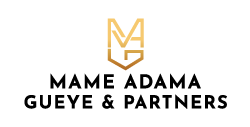Consumer protection has always been a major concern in the economic and social policy of the Senegalese government. The need to ensure an adequate legal framework for the evolution of the economic structure has always been put forward.
In this vein, initially, the protection of the consumer related matters were governed by the law n°65-25 of March 4, 1965 on Pricing and Infringements to the Economic Legislation. Then, taking into consideration the dephasing caused by the evolution of the practices, the aforementioned law was abrogated in favor of the law n°94-63 of August 22, 1994 on Pricing, Competition and Economic Dispute. Within this framework, a National Competition Commission was setup to monitor free competition. It was also laid down the rules governing consumer protection and the relationship between its implementing officials and economic operators clarified.
Inspite of the aforegoing, the liberalization of the economy and the evolution of consumption patterns as well as of the practices and commercial techniques weakened consumers against professionals. This highlighted the limitations of the above-mentioned law of 1994.
To remedy this situation, Law n° 2021-25 dated April 12, 2021 on Pricing and Consumer Protection has been adopted to strengthen all aspects of consumer protection.
Executive Decrees and Ministerial Orders are expected to be further enacted.
Part of the provisions of Law n°94-63, in particular the contradicting Articles 32 to 91, was repealed in accordance with Article 156 on transitional provisions of the so enacted Law n° 2021-25. Therefore the provisions relating to the National Competition Commission and anti-competitive practices remain governed by Law n°94-63.
Law no 2021-25 enshrines 8 major innovations strengthening consumer protection, including:
- the definition of technical terms ;
- the extension of the consumer’s right to information
- the identification and repression of unfair terms;
- the regulation of new commercial practices;
- the consolidation of the sanctions mechanism;
- the strengthening of the investigative powers of the agents in charge of implementing the law;
- the right given to officially registered consumer associations to take legal action to defend collective interests;
- the reform of the National Consumer Council and the creation of a National Unfair Terms Observatory.
The purpose of this new law is to define the rules applicable to economic operators in the course of their activities and those relating to pricing, which are intended to ensure transparency and fairness of commercial transactions. In addition, it also defines the relationship between consumers and suppliers.
In order to ensure the effectiveness of consumer protection, the law also established two advisory bodies within the Ministry of Commerce, namely:
- a National Consumer Council (CNC);
- a National Competition Observatory (ONCA).
The Competition Commission still have jurisdiction over competition-related matters.
The major contributions of Law 2021-25 are as follows:
- Clarification of the normative framework at technical and institutional levels;
- Consolidation of consumer protection rights;
- Regulation of new commercial practices;
- Strengthening of the repressive system.
1.Clarification of the normative framework at technical and institutional levels
Law 2021-25 clarifies the normative framework of consumer protection rules at the technical level by defining their scope of application as well as the related terms (a) and at the institutional level by reforming the consultative bodies in charge of consumer law and competition law intrinsic related-matters(b).
-
a. Definition of technical terms
Initially, law n°94-63 did not define the technical terms intrinsic to it. Also, its scope of application was not specified.
From now on, all the technical terms are defined beforehand by Law 2021-25 so that anyone may have perfect information of the subject matter.
In the same dynamic, it expressly specifies the scope of application of the new provisions on pricing and consumer protection.
Thus, the new law applies:
- « To all the activities of production, distribution and provision of service which are carried out on the national territory
- To all natural or legal persons, whether or not they have their registered office or establishments in Senegal, insofar as their operations or behavior have a direct or indirect effect on the market or a substantial part of it.
- To public or semi-public persons insofar as they are involved in the activities mentioned in point 1 of this article;
- Natural or legal persons acting in a field governed by special regulations insofar as their operations fall within the scope of the activities mentioned in point 1 of this article. »
-
b. Institutional reform
On the institutional level, Law n°2021-25 introduces a reform by creating two new consultative bodies within the Ministry of Commerce.
On the one hand, Articles 148 to 150 etablish a National Consumer Council (CNC). This body is obligatorily consulted by the government on the major orientations and draft legislations relating to pricing, distribution and consumption sector.
It has the missions to give opinions on:
- draft legislations relating to consumption
- the setting of prices for price regulated products;
- the implementation of commercial devices when this opinion is provided for by the legislative or regulatory text organizing the sector.
On the other hand, articles 151 and 152 etablish a National Observatory of Unfair Terms (ONCA) whose missions include:
- to seek out, in the contract models usually proposed by professionals to consumers and/or from consumers, terms that may be unfair and, where appropriate, to issue recommendations, possibly made public, aimed at obtaining the deletion or modification of the terms;
- to issue an opinion on draft legislative or regulatory texts referred to it and whose purpose is to prohibit, limit or regulate certain terms considered unfair.
Last, in accordance with the transitional provisions of Article 156, the law only part of the provisions of Law 94-63 was repealed so that the Competition Commission that it established remains responsible for all anti-competitive practices in accordance with its Article 9. As such, it must be consulted by the Government on any draft regulatory text instituting a new regime having a direct effect to:
- impose restriction for the exercise of a profession or access to a market ;
- impose uniform practices in terms of pricing or conditions of sale.
2.Consolidation of consumer protection rights
In order to reinforce the protection of consumers who are constantly in a weak position when dealing with professionals, Law no 2021-25 considerably broadens the right to commercial information (a) and reinforces their protection by giving right to officially registered consumer associations to take legal action to defend their collective interests (b).
-
a.Enlargement of the right to information
Initially, the obligation to provide commercial information was interpreted by Law no 94-63 as being the fact of adopting a fair attitude towards consumers through a correct communication of sales conditions and a good information on the prices quoted.
From now on, fair attitude and simple correct communication of sales conditions are no longer sufficient. The professional is obliged to “put the consumer in a position to know, in a clear and comprehensible way, the essential characteristics of the good sold or the service rendered” in accordance with Article 8 of Law no 2021-25. A reinforced right to information is thus established in order to enable consumers to be fully aware of the essential elements before entering into a contract.
To this end, the law states that the information must be provided by means of marking, labeling, display or any other appropriate medium and inform consumers on the following:
- prices;
- potential limitations of contractual responsibility;
- particular conditions of sale and use.
The same article provides that the mandatory information relating to the marking, labeling or display of certain products shall be determined by a Ministerial Order of the Minister of Commerce.
Henceforth, for certain sectors determined by Ministerial Order of the Ministry of Commerce, non-professional purchasers may also request to be given a receipt, a sales slip or any other document in lieu thereof.
Moreover, with respect to producers, importers, wholesalers or service providers, the obligation to provide information extends to the communication of the price list and the general conditions of sale.
Concerning the rules governing advertisement, initially, Law no94-63 did not detail its modalities. A decree merely classified the way in which price advertising rules were set.
From now on, Article 11 of law no 2021-25 details the rules relating to advertisement and in particular, the compulsory mentions that must be highlighted, namely:
- the nature and origin of the goods and services offered;
- the proposed term of the offer to be upheld by the advertiser .
Moreover, the same Article states that should promotional operations be likely by their magnitude or frequency to disrupt markets, a Ministerial Order of the Minister of Commerce shall sets the frequency and duration of such operations for the subjected products.
Last, with respect to the rules governing invoicing, the innovation of Law no 2021-25 consists in the fact that, on the one hand, the legislator has extended the scope of the obligations relating thereto. From now on, “any purchase of goods or any provision of services for a professional activity” must be invoiced. On the other hand, the information required to be on the invoice are now specified by the provisions of the new law.
-
b. Authorization for officially registered consumer associations to take legal action to defend collective interests
In order to preserve consumer rights, Law no 2021-25 entitles officially registered associations to take legal action to defend the collective interests of consumers.
This right is enshrined in Articles 142 to 145, under which the said associations are vested two prerogatives.
The first one consists in taking legal action by exercising the rights granted to civil parties concerning the facts constituting an infringement of the provisions of the law and directly or indirectly harming the collective interests they aim to defend. In this respect, the associations may request any measure to stop the violation of consumer rights provided for by Law 2021-25 and to obtain liquidation damages.
The second option consists in requesting the civil court to order, if necessary, under penalty, the deletion of an illegal or unfair clause in any contract or type of contract offered or intended for the consumer.
3.Regulation of commercial practices
Law n°2021-25 does not have provisions dedicated to anti-competitive practices. Its article 156 on transitional provisions maintains in force Articles 1 to 32 of law no 94-63 includes the provisions relating to anti-competitive practices. There is therefore no change in this respect.
Law n°2021-25 focuses on the various commercial practices and distinguishes between those that are regulated(a and those that are prohibited.(b)
-
a.Regulated commercial practices
- distance selling of goods, supplies and services
- canvassing
- advertising lottery
- advertising;
- clearance sale ;
- warranties and after-sales service;
- instalment sales.
This is an innovation compared to the provisions of law 94-63, which did not address these techniques.
In addition, the decrees referred to in Article 33 of Law 94-63, which were supposed to set out the rules for the application of price advertising, did not specify the legal framework for advertising.
Regarding price regulation, law 94-63 provided a legal framework. The innovations introduced by Law 2021-25 include the following:
- price regulation motivated by exceptional circumstances can now only be carried out by regulation, the legislative option having been abolished;
- when temporary regulatory measures must be put in place, the prior opinion of the National Consumer Council is now required;
- the validity of these regulatory measures is limited to a period of 3 months.
Additional clarifications are made to the definition of the concept of illegal price by deleting the multiple hypotheses and by generalizing the definition in order to encompass the maximum of situations.
-
b.Prohibited commercial practices
- sales with a premium;
- sales without prior order;
- “snowball” sales and services;
- fixed prices;
- abuse of weakness;
- wild sales and paracommercialism;
- counterfeiting
In addition, the legislator provides subsidiary clarifications in article 79 on a series of other prohibited commercial practices.
Correlatively, it completes the regime of 3 commercial practices which were initially dealt with by the law n°94-63.
- the refusal and subordination of sales or services for which the provisions laid down by law 94-63 are renewed and clarifications are made;
- the resale at a loss for which the provisions initially enacted by law 94-63 are renewed and clarifications are made;
- discriminatory practices, for which the provisions of the text remain unchanged.
Another innovation of Law 2021-25, provisions are dedicated to the identification of unfair contractual terms. A principle of prohibition is established with regard to terms whose purpose or effect is to create, to the detriment of a non-professional or consumer, a significant distortion between the rights and obligations of the parties to the contract, regardless of the form or the contractual medium.
In addition to this principle of prohibition, Law 2021-25 establishes rules of interpretation of the unfairness according to which the unfairness is assessed at the time of the conclusion of the contract, in all the circumstances surrounding the conclusion and all the other clauses of the contract. Also taken into account are the clauses contained in another contract when the conclusion or performance of the two contracts are legally dependent on each other.
Furthermore, the law specifies that the unfairness does not relate to the definition of the main subject matter nor to the adequacy of the price/remuneration to the good or service sold, provided that the clauses are drafted in a clear and comprehensive manner.
Finally, Article 28 of Law 2021-25 lists a series of clauses that may be considered unfair by virtue of their purpose or effect, even if they comply with the conditions of validity and do not fall under the criteria for interpreting unfairness.
4.Strengthening of the repressive system
-
a.Consolidation of the sanctions system
Initially, the procedure was detailed in a single section by Law 94-63 which was confusing for novices to understand the subtle distinctions to make between each of the economic dispute, administrative and the judicial procedures.
In contrast, law n° 2021-25 provides for a more streamlined wording structure by distinguishing between economic dispute (Art. 96 et seq.), administrative proceedings (Art. 107 et seq.) and judicial proceedings (Art. 109 et seq.).
There are no major changes concerning the economic dispute procedure, namely on the provisions relating to the means of noticing infringements and to seizures. Clarifications have been made to the provisions relating to administrative and judicial procedures.
With regards to sanctions, they are listed in articles 82 to 94 of law 2021-25. There is a clear increase in the penalties for illegal pricing practices and violations of information rules. In addition, the law innovates by enacting a system of sanctions that includes:
- offences relating to sales techniques ;
- commercial practices and other prohibited offences.
Finally, the main innovation of the law 2021-25 is the penalization of legal persons. From now on, legal entities other than the State, local authorities, public establishments, executive agencies or similar structures are criminally liable for the offences provided for by this law (n°2021-25) committed on their behalf by their bodies or representatives. In this regard, Law 2021-25 provides that legal persons are jointly and severally liable for the amount of confiscations, fines and costs incurred by their directors. The sanctions they incur as specified in article 121 include fines, permanent or temporary prohibition to operate its business, closure of the business, confiscation and prohibition posting.
-
b.Strengthening the investigative powers of law enforcement officers
In its new provisions, law 2021-25 strengthens the investigative powers of law enforcement officers. From now on:
- professional secrecy is no longer enforceable against sworn internal trade officers when performing their duties (Art 122).
- the officers can seize in any hands of the documents likely to facilitate the accomplishment of their mission (Art 123);
- a search warrant to be obtained prior to making a search is no longer required and the limitation on daytime home visits has been removed (Art 127);
- an additional period of time may be granted by the director of commerce to review the documents provided to them (Art. 132).



